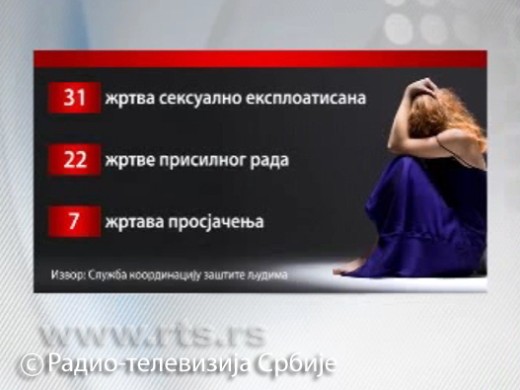Hotline: +381 61 63 84 071
When protectors become abusers - Underage girls forced into prostitution by police officers

When protectors become abusers - Underage girls forced into prostitution by police officers
Children without parental care are expected to be safe and protected in the institutions responsible for their care. Unfortunately, that is often not the case - children themselves become victims of trafficking. The recent case in Tuzla has once again raised urgent questions about the safety of children in shelters and foster families, and about the scale of systemic failures.
The organizers of the sexual exploitation of the girls from Tuzla were police officers, who abused the minors, recruited them, and forced them into sexual acts with others in exchange for money.
Prepared by Jovana Vulinović
Sexual services were also used by a university professor and a former member of parliament, even though they were aware that the girls were victims of human trafficking.
“The girls have been placed in a safe location, but what is certain is that they will require long-term psychological support. The people who exploited them within the trafficking chain were those who belonged to the system - individuals who likely intimidated the girls, threatened them, or made them believe they might end up in prison,” said Abida Behlić, president of the NGO “Novi put” for the prevention and protection of victims of human trafficking in Mostar.
The residential care institution from which the girls originated also issued a statement. They said the girls had been temporarily accommodated in the Shelter for child victims of crime, but not in the central facility itself. After a short period, the girls were taken over by the social welfare services.
“They belong to one of the most vulnerable categories, exposed to every form of exploitation and violence. When we speak about the institutions responsible for caring for such children, we must ask ourselves whether they have sufficient staff to provide adequate care to such a large number of beneficiaries,” added Behlić.
Jurić: A trusted man sexually abused two children
Similar situations occur in Serbia as well, according to organizations working to combat human trafficking.
“There have been cases where foster parents exploited children, and cases where individuals entered shelters, took children out, and abused them,” said Jelena Hrnjak of the NGO Atina.
According to her, Serbia has more than 6,000 children without parental care, and over 800 of them are placed in institutional settings - a reality that highlights the gravity of the problem.
“We had a direct case involving a man whom many trusted - a member of the academic community, a doctor of forensic medicine - who sexually abused two minors. We are often quick to defend abusers by insisting that they are ‘respected members of society,’ when in reality, there is nothing respectable about their actions,” said Igor Jurić from the Center for Missing Children.
Support for whistleblowers
Experts emphasize that society must build awareness and that everyone who learns that someone is a victim of trafficking must report it.
“If, for example, employees in certain institutions are not confident in their own protection and safety, then we must develop specific mechanisms - such as whistleblower protection - so they can report criminal offenses without fearing consequences. Even anonymous reports must be thoroughly investigated and acted upon,” said Jelena Hrnjak.
Human traffickers are often known to their victims. They are also known to the police and frequently have long criminal records, yet only 1% worldwide receive proper punishment.
In Serbia, the prescribed sentence for this crime is 12 years in prison, but practice shows that traffickers often receive lower penalties.
The original video report is available at the link: Kada zaštitnici postanu zlostavljači – maloletnice u lancu trgovine ljudima | Društvo | RTS












 FACEBOOK
FACEBOOK TWITTER
TWITTER YOUTUBE
YOUTUBE